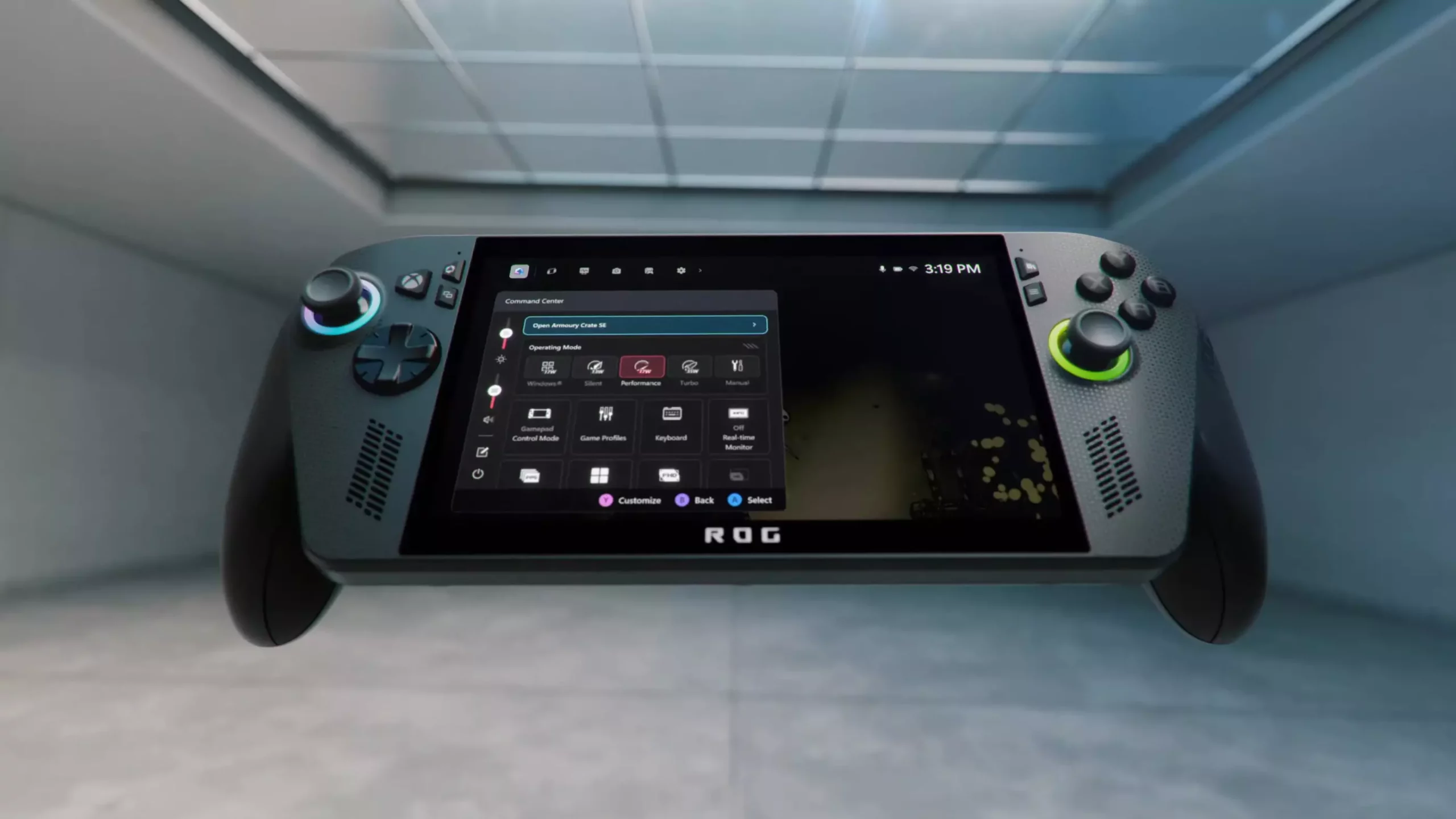A recent revelation from the Verge has stirred the gaming community into a frenzy, claiming that Microsoft’s ambitious foray into a handheld Xbox console is effectively “canceled.” This shocking assertion invites questions not merely about the fate of a potential device but about the larger trajectory of Xbox’s role in the gaming ecosystem. At first glance, it may seem perplexing that the first-ever Xbox handheld could be essentially scrapped even before its official introduction. However, understanding the forces at play reveals a nuanced and potentially transformative strategy for the tech giant.
It’s essential to recognize that this assertion is built on rumors about a product that has not received formal validation from Microsoft. However, amid these uncertainties, a clear narrative begins to emerge: Microsoft might be pivoting away from traditional hardware production to a model emphasizing collaboration with external manufacturers, like Asus, for gaming hardware development. The Asus ROG Xbox Ally and ROG Xbox Ally X, which have been recently announced, serve as examples of this newfound approach. These are not official Xbox devices; instead, they leverage existing PC architecture, delivering a gaming-oriented experience. This model speaks volumes about a strategic shift that is far more profound than mere hardware fabrication.
The Emergence of the Xbox Ecosystem
The idea that future Xbox experiences will depend on third-party partnerships rather than proprietary consoles is revolutionary. According to industry analysts, the intention appears to be fostering a seamless interactive ecosystem where consumers can engage with Xbox offerings across assorted devices. Microsoft is reportedly focusing on maintaining its Game Pass subscriber base, potentially viewing its future not through the lens of console sales but as a holistic gaming service accessible on multiple platforms.
As the narrative goes, Microsoft is crafting a specialized version of Windows, streamlining the operating system to enable gaming without the typical overhead. This shift not only simplifies the user experience but lays the foundation for a broader Xbox ecosystem that could replicate the advantages of console gaming without relying on traditional hardware models. There’s an inherent logic in this evolution: by making Xbox gaming more accessible on familiar PC platforms, Microsoft can broaden its market reach, enhancing the Gamer’s experience beyond rigid console boundaries.
Game Pass: The Heart of Microsoft’s Strategy
The significant thrust behind this evolving paradigm appears to be Game Pass, Microsoft’s subscription service that offers access to a vast library of games for a monthly fee. This shift raises the potential to transform every screen into an Xbox, effectively allowing users to immerse themselves in gaming experiences without having to invest heavily in specialized hardware. Consider the implications: if Microsoft succeeds in crafting a truly versatile gaming platform, consumers could enjoy Xbox titles on a range of devices that suit their preferences and budgets.
Interestingly, this strategic pivot seems to also reflect broader trends within gaming. The announcement that Microsoft would communicate its branding as ‘Xbox PC’ denotes a clear intention to blur the lines between console and PC gaming. By framing Steam as a competitor, Microsoft effectively signals a willingness to redefine traditional gaming paradigms. Anyone involved in the gaming ecosystem understands that barriers between platforms have been eroding commensurately with technological advancements. This would not only solidify Xbox’s position but could also revolutionize how games are experienced in the future.
What’s Next for the Xbox Brand?
Despite the uncertainty surrounding the handheld console’s fate, all signs undeniably point to a burgeoning evolution in how gaming hardware is supported by software systems. Speculation surrounding products like the Asus ROG Xbox Ally raises an important point of discussion: Are these devices mere experiments, or do they represent the frontline of a strategic realignment within Microsoft and the Xbox division? The essence of Xbox gaming could soon morph into a cloud-based or streaming paradigm that prioritizes flexibility, accessibility, and consumer choice over static hardware offerings.
As we move forward, this evolution awaits validation. The marketplace and the gaming community will play significant roles in shaping Microsoft’s direction. While the ‘cancellation’ of the handheld device may disappoint some, the underlying shift promises a future where gaming can seamlessly transcend devices, offering richer, expansive experiences for players everywhere.


Leave a Reply